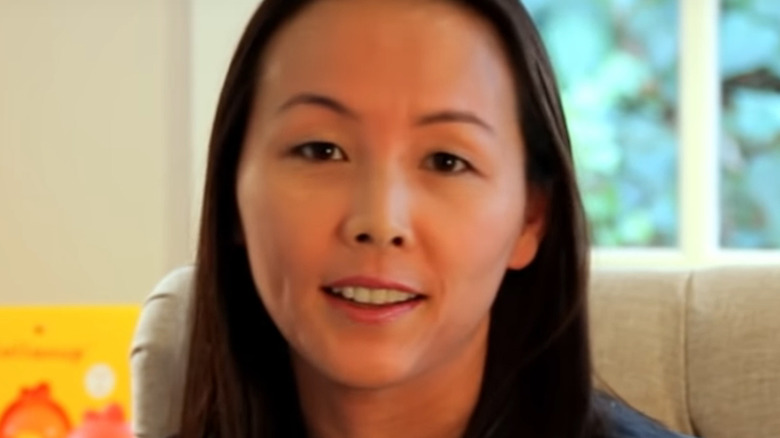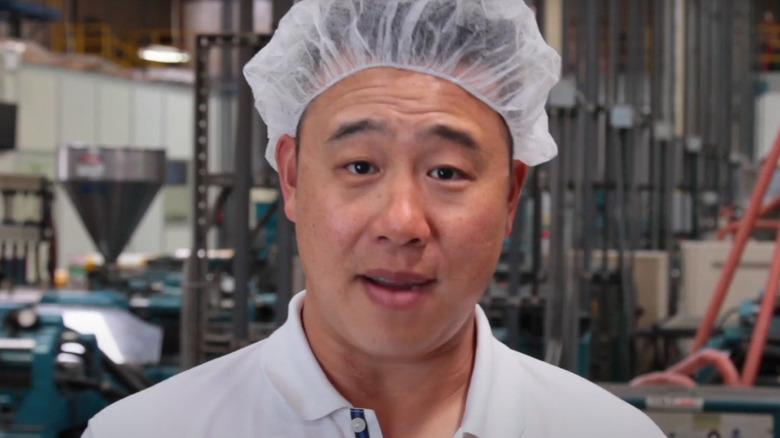Whatever Happened To Lollacup After Shark Tank?
While the experienced business owners that comprise the titular panel of Sharks on ABC reality competition series "Shark Tank" regularly invest in the small businesses presented to them by contestants, backing from the Sharks doesn't always spell success. In other words, not every business can be like Potato Parcel.
Titin is one example of a business that seemed like it would likely become a success after "Shark Tank" only to implode a few years later. In fact, upon his "Shark Tank" appearance, Titin CEO Patrick Whaley secured a $1 million investment from Daymond John, which was the most John had invested on-air at that point in time, proving that even historic successes aren't always enough to keep a "Shark Tank" business afloat.
During Season 3 of "Shark Tank," entrepreneurs Hanna and Mark Lim pitched a cup for toddlers that they claimed utilizes a straw that's more befitting of some kids' needs than a typical sippy cup. Ultimately, they secured $100 thousand from Robert Herjavec and Mark Cuban, putting their upstart business in prime position to grow.
Lollacup has rebranded and expanded its line of products
In recent years, Hanna and Mark Lim expanded their business' offerings beyond just their flagship straw cup and renamed it Lollaland. They now sell a range of products for toddlers designed with an ethos similar to that which made their first invention popular. That means that all of their products are free of BPAs and other potentially objectionable chemicals sometimes found in plastics, which was one of the selling points of the Lollacup they originally listed on "Shark Tank."
According to a section of the Lollaland website, the company has grown significantly since its "Shark Tank" appearance. They now describe the line of products they sell as "safe, smart feeding choices for babies and toddlers." This includes the original Lollacup, in addition to plates, bowls, utensils, and other items.
Lollacup, then, went the way of Max Bikini, which similarly rebranded after its "Shark Tank" appearance and remains in business today. Given its current upward trajectory, Lollaland has become an unqualified "Shark Tank" success story in the years since its fateful TV appearance.

